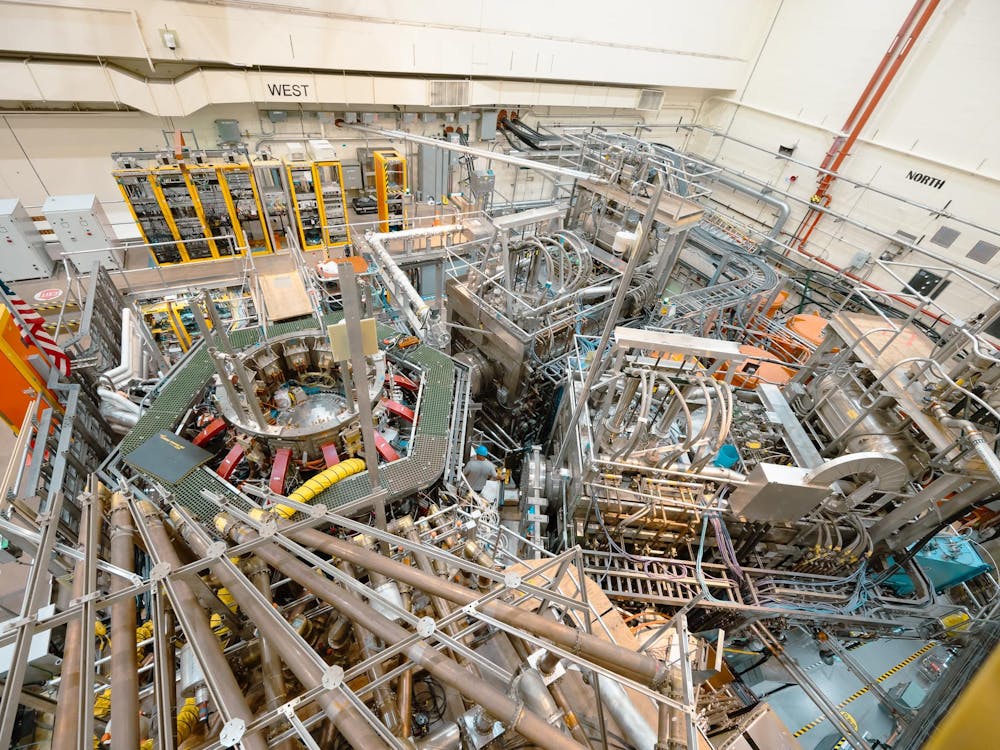Physics professor Alexander Polyakov was awarded the 2013 Fundamental Physics Prize for his contributions to string theory and quantum field theory on March 20. Polyakov was chosen to receive the award by a selection committee consisting of the nine inaugural laureates, including four members of the Institute for Advanced Study.
At $3 million, the Fundamental Physics Prize is currently the most lucrative academic prize. It was established by the Yuri Milner Foundation in 2012 in order to recognize outstanding research in physics and to inspire young people to pursue science, according to the foundation’s website. As the father of an autistic son, Polyakov explained that he would like to use the award money for his son’s treatment and for autism support and research at large.
As selection committee member and IAS Professor of Theoretical Astrophysics Juan Maldacena GS ’96 described, Polyakov was chosen from among the three winners of the Physics Frontiers Prize, which he won in December last year. Other candidates also included Joseph Polchinski and joint winners Charles Kane, Laurens Molenkamp and Schoucheng Zhang.
“Polyakov is someone who really has an outstanding perspective on theoretical physics,” Maldacena said. “He has a very unique way to approach problems.”
Maldacena explained that Polyakov was the first to show that the same type of theory could be applied to describe both phase transitions and particle physics.
During his academic career, Polyakov has attacked a variety of problems in theoretical physics, including the theory of turbulence, quantum chromodynamics and several advances in gauge theory and string theory.
One of these theoretical models aimed to explain the problem of quark confinement. Quarks, the elementary particles that compose protons and neutrons, are not found outside of the nucleus, Polyakov explained, and the force that contains these particles within the protons and neutrons can be described using a string-like model. “Imagine that there is some string or thread connecting these particles,” Polyakov explained. “When you try to remove the quark from the proton, the string gets stretched and doesn’t allow it to go.”
Although Polyakov said that he often confronted failure during his academic career, he maintained an excitement for theoretical physics because of its intrinsic universality. “You can apply the same ideas to very different problems,” Polyakov said. “That is what is really most exciting in theoretical physics: the feeling that I keep following one problem which is developed on top of some universal language for describing nature.”

Polyakov added that the announcement of his receipt of the prize was unexpected. “You see, there are always a number of highly talented people who deserve the prize,” Polyakav said. “It’s somewhat like a lottery at the end. I didn’t expect to win this lottery at all, but of course I was pleased.”
Graduate students of physics at the University of Pennsylvania, James Stokes and Zain Saleem, met Polyakov through a Princeton physics course and are collaborating with him on a research project. Stokes described Polyakov as both a passionate and encouraging teacher. “On the one hand, he’s clearly a genius, but on the other hand, he’s a very approachable and nice guy,” Stokes said.
“Science has become a profession — publishing for the sake of publishing — but not for Polyakov,” Saleem said. “When you talk to Polyakov he doesn’t treat it as a profession. It’s more like a passion.”
Saleem and Stokes both said they were not surprised to hear that Polyakov was awarded the Fundamental Physics Prize. “He has so many achievements in physics that it’s almost not really a surprise that he got it,” Stokes said. “When I heard that he was on the list of finalists, I was sure he was going to get it.”

Polyakov is currently working on the problem of the cosmological constant. Astrophysicists have observed that the universe is expanding at an increasing rate, although physicists previously believed that gravitational forces would slow down this expansion. Polyakov explained that he is developing a theoretical model that may help explain this cosmological acceleration.







